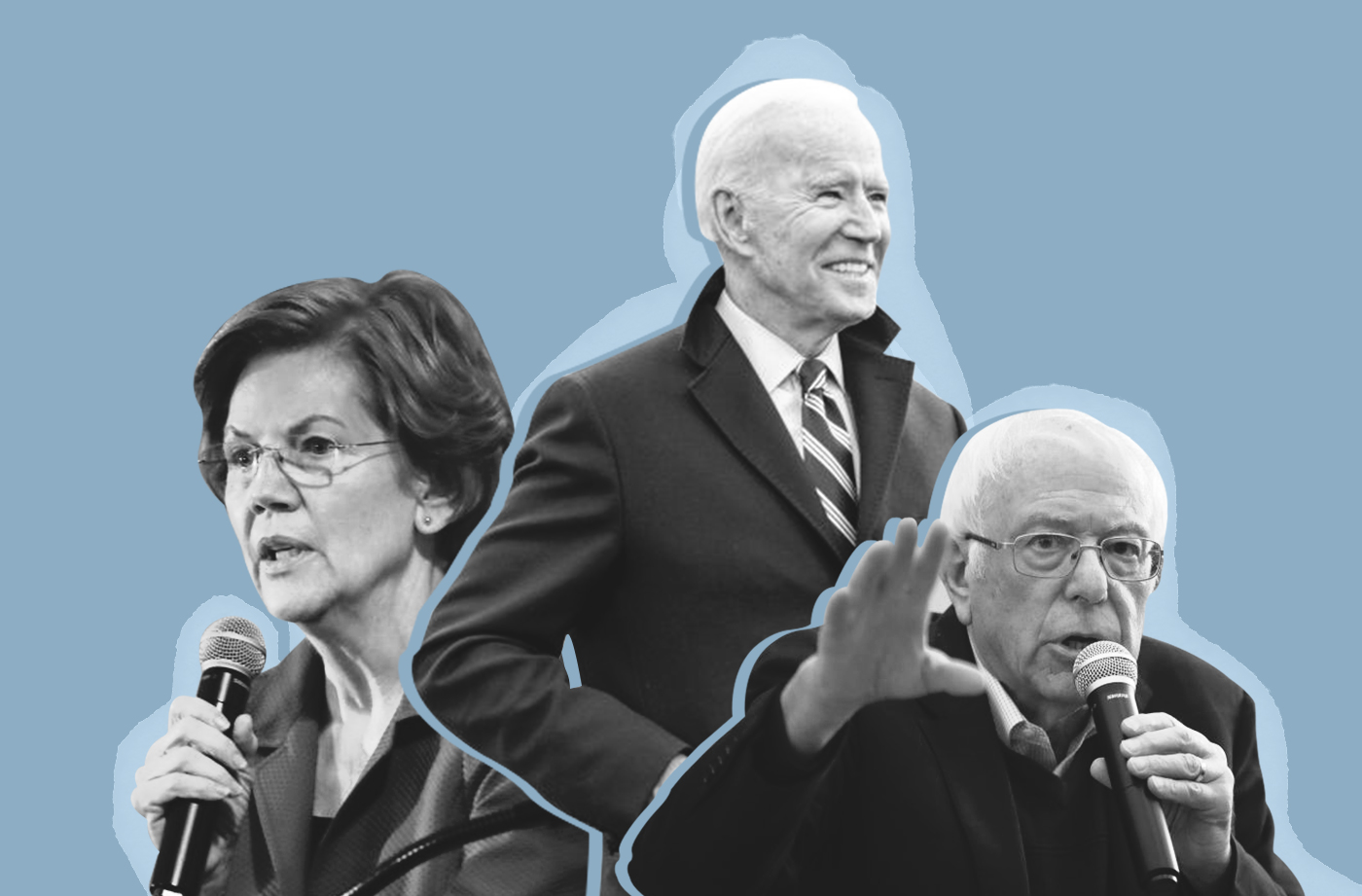
January 23, 2020 at 04:00PM by CWC
February 3 is a big day, politically speaking: It’s the date of the Iowa caucuses, which marks the official kickoff of primary election season. As states prepare to decide the Republican and Democratic presidential nominees, all eyes are on the vast field of Democratic candidates, which is now down to 12 contenders. (Sixteen others have dropped out of the race, while only two nominees are challenging President Trump for the Republican nomination.) Clearly, there are many things at stake in this election—the environment, gun safety, and impending military conflict, to name a few—but recent polls have shown that health care is the issue that’s most important to voters in 2020.
When you look at the Democratic candidates’ stances on health care reform, there are several things they have in common. Just about everyone wants to reverse the Trump administration’s attacks on the Affordable Care Act, while reversing the “gag rule” that bans government-funded health-care clinics from referring patients to abortion providers and, in effect, restoring funding to Planned Parenthood. Nearly all of the Democratic candidates are also pledging to make health care and prescription drugs more accessible and affordable. But their specific proposals for doing so are varied, and the most hotly debated aspects of their plans revolve around health insurance.
ADVERTISEMENT
ADVERTISEMENTKate Spade Autumn/Winter Sale |
Some candidates support a lower-cost, government-run insurance option that would be open to every American and exist alongside private insurance. Others are in favor of a single payer healthcare plan like the one in Canada, in which all Americans would receive free care and private insurance would be used for elective procedures. Then, there are the candidates who propose a blend of both.
Many Democratic hopefuls are also pledging to invest in solving specific public health problems, from the opioid crisis to mental health and maternal mortality. So where do the front-running candidates stand? Here, we summarize the health-care platforms of the six highest-polling candidates (at press time)—consider it your cheat sheet for primary election day in your state.
ADVERTISEMENT
ADVERTISEMENTSports Direct Free Delivery on All Orders! |
Joe Biden
Biden is clearly a big fan of the Affordable Care Act—as he likes to point out, he was involved with bringing it to life while vice president in the Obama administration. He wants to maintain the ACA while also offering a public insurance option, which would negotiate with hospitals and providers to lower prices. Those opting into the public health-care plan would receive primary care without a co-pay, and low-income people who live in the 14 states without Medicaid access would be able to sign on without paying a monthly premium.
ADVERTISEMENT |
Biden is also proposing to introduce tax credits that would cap the cost of all healthcare coverage at 8.5 percent of a person’s income, no matter how much that person earns. (Right now, coverage costs are capped at 9.25 percent of income, and they only apply to those making 400 percent or less of the federal poverty level—that works out to about $50,000 for a single person and $100,000 for a family of four.) For some middle class families, he says, this could cut their monthly premiums in half.
Prescription drug costs, too, could go down under a Biden presidency. He proposes speeding up the development process for generic drugs, allowing Americans to buy approved medication from other countries to create more market competition (theoretically resulting in lower prices), and placing price limits on both generic and brand-name drugs. He pledges to expand access to contraception and protect abortion rights, boost funding for mental health services, and roll out a strategy to reduce the maternal mortality rate, particularly among women of color. His campaign site says that he will eventually present plans for tackling gun violence and opioid addiction, but no details are currently available.
Bernie Sanders
Bernie Sanders is basically the patron saint of single payer healthcare in the US—as a Senator, he introduced the Medicare for All Act of 2019, which proposes that every single American be covered under Medicare, the federal health insurance system that currently serves those age 65 and over. His plan would expand Medicare to include services including reproductive health, dental, vision, mental health, and substance abuse treatment, and every doctor in the country would be included. Sanders claims that this strategy would allow most Americans to receive health-care services for free, reduce prescription drug costs, and protect people from losing their health care benefits when unemployed.
Obviously, a big question is how the government would pay for such an ambitious scheme. Sanders says there would be a new healthcare income tax to pay for it, but that tax would likely work out to be less than the cost of annual insurance premiums, deductibles, and co-pays for most people. He also wants to wipe out $81 billion in past-due medical debt, which would theoretically help many of the 500,000 people who go bankrupt over medical expenses each year.
In the short(er) term, Sanders vows to improve mental healthcare and increase access to Medicaid, SNAP, and WIC programs. He pledges to cut prescription drug prices in half, cap out-of-pocket pharmaceutical costs to $200 a year, and has stated that he will seek to legalize cannabis nationwide within the first 100 days of his presidency.
Elizabeth Warren
Warren supports Sanders’ single payer healthcare concept and says she’d work to set it in motion by the end of her first term. (And she claims it could be funded without taxing the middle class—instead, the tax burden would fall on corporations and the wealthy.) But she also proposes creating a public option in the first 100 days of her presidency that would provide free benefits to children under 18 and people at or below 200 percent of the poverty level. Everyone else would be able to pay a premium to join the plan.
As a senator, Warren is currently working to lower prescription drug prices—for instance, she sponsored the Affordable Drug Manufacturing Act, which would allow the US Department of Health and Human Services to manufacture generic drugs to keep the prices down. She’s also fighting to ensure that insurance companies provide adequate mental health benefits, and she recently introduced the ambitious CARE Act (alongside Rep. Elijah E. Cummings), which seeks to direct $100 million in federal funds toward fighting the opioid crisis. She’s also seeking to expand access to health care in rural areas, which have seen higher rates of opioid-related deaths than cities.
ADVERTISEMENT

ADVERTISEMENT
Anya Hindmarch - I AM A PLASTIC BAGAlso noteworthy: Warren’s renowned anti-corruption stance extends into health care. As president, she says she’d push for reforms that would place limits and taxes on drug company lobbying and campaign spending, among other things.
Pete Buttigieg
Buttigieg sums up his vision for health care as “Medicare for all who want it.” Essentially, this means that he supports a public insurance option, like the one championed by Biden, while still allowing Americans to enroll in private insurance plans. However, if the insurance companies aren’t able to offer competitive alternatives, he believes that everyone will eventually enroll in the public option and it will “create a natural-glide path to Medicare for All.” When it comes to private insurance, he proposes making health insurance subsidies available to more low-income people, capping healthcare costs at 8.5 percent of income for all Americans (like Biden), and limiting out-of-pocket costs for seniors on Medicare.
But perhaps the most interesting aspect of Buttigieg’s proposed health-care policy has to do with his detailed focus on mental health reform. In addition to improving access and quality of care, he wants to address the shortage of mental health-care workers, better integrate mental health and addiction treatment into primary care settings, and require every school in the country to provide Mental Health First Aid courses, among many other things. He’s also seeking to roll out large grant program (to the tune of $100 billion) to incentivize communities to improve mental health and addiction prevention, while launching a National Health Equity Strategy to minimize racial bias and inequality in the healthcare system as a whole.
Amy Klobuchar
Eventually, Klobuchar would like to see America transition into single payer healthcare, but in the short term she supports the public insurance option. The senator has already taken action on this front—she recently cosponsored a bill introduced by Hawaiian senator Brian Schatz that would allow states to create public insurance options through Medicaid, which would be capped at 9.5 percent of one’s income. As a senator she has also worked to lower prescription drug prices, including introducing several bills that would improve access to generics and allow Americans to buy medication from Canada. She vows to do even more on this front in office, while also improving access to maternity care in underserved areas.
Klobuchar also says she will take “immediate action” around addiction and mental health care reform, by investing $100 billion in new prevention and early intervention plans, expanding access to treatment, and creating more mental health-care jobs and facilities. She’s also committed to finding a cure for Alzheimer’s disease and says she would create a $6,000 tax credit to support caregivers.
Michael Bloomberg
As the newest entrant to the race, Bloomberg hasn’t revealed many details about his proposed health-care policy yet. What we do know is that he supports a public health insurance option that would be free for low-income Americans in the 14 states without access to Medicaid—and that he is not in favor of single payer healthcare, now or ever. Like Buttigieg, he wants to cap out-of-network healthcare costs at 200 percent of Medicare rates and limit drug prices to 125 percent of those in other “advanced nations,” irregardless of an individual’s insurance plan. Bloomberg has also stated that he wants to reduce prescription drug costs for those on Medicare and ban drug companies from making pay-for-play deals with pharmacies.
According to the numerology of 2020, we might finally start to see an end to the political chaos this year. (We can all dream, right?) And from an astrological perspective, here’s why Joe Biden might have the best (cosmic) chance of clinching the democratic nomination.
Author Erin Magner | Well and Good
Selected by CWC

ADVERTISEMENT
ADVERTISEMENTUp to 30% off Gift Sets |






